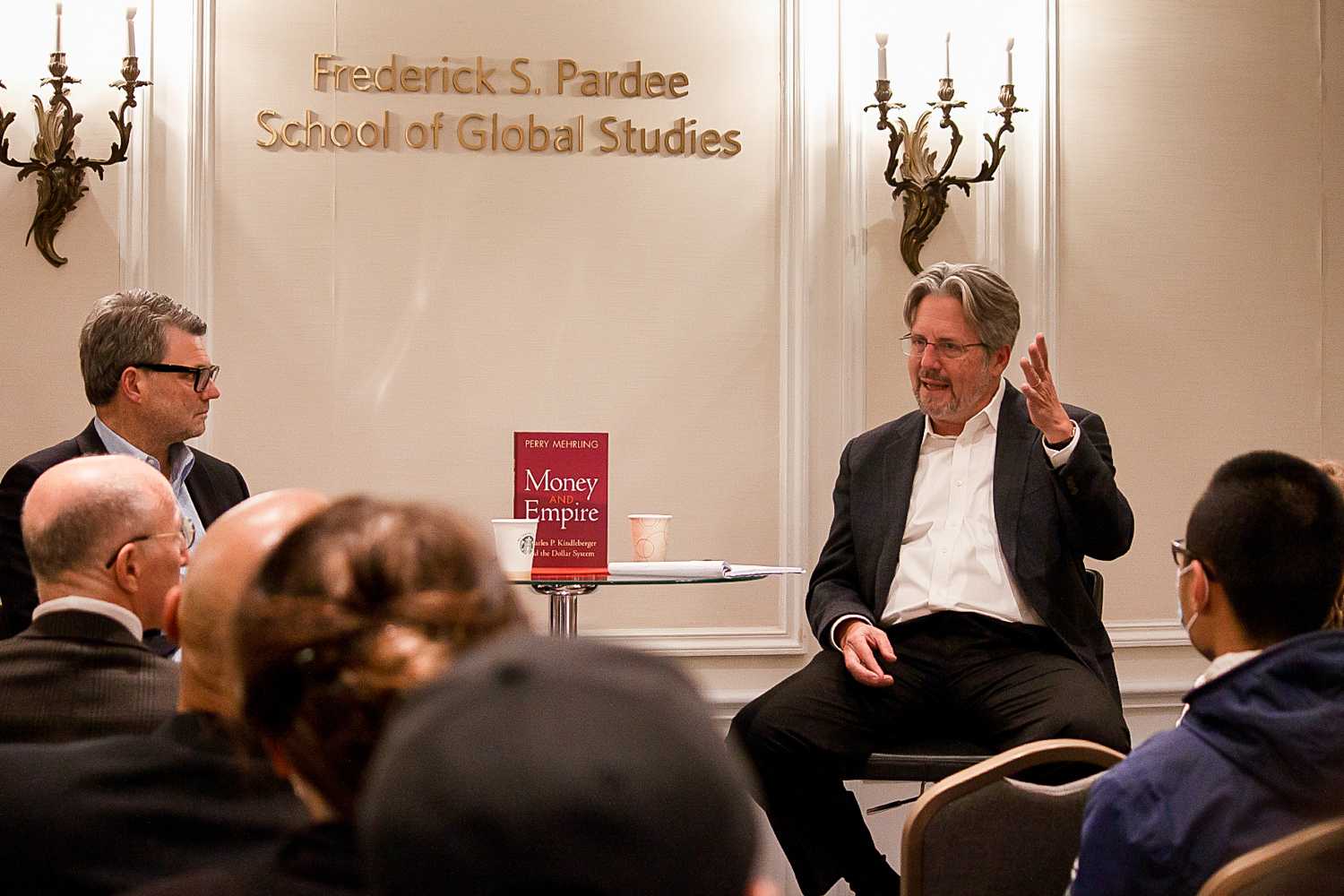Perry Mehrling’s recent book is on the list for Amazon’s Best Sellers in Macroeconomics. Mehrling, a Boston University professor of international political economy, wrote “Money and Empire: Charles P. Kindleberger and the Dollar System,” which follows one of the most influential international economists of the 20th century and explores the rise of the global dollar system.
The BU Global Development Policy Center, a research center affiliated with Frederick S. Pardee School of Global Studies, hosted a book talk about “Money and Empire” on Monday.
“The rise of the global dollar system comes from people trying to find a single currency in which they can do global business,” Mehrling said in an interview. “And so [Kindleberger] thought that was a natural endpoint of evolution.”

“Money and Empire” traces the evolution of the global dollar system both politically and economically in the 20th century — through the lens of one man’s life.
“It was a road that was bumpy, but here we are,” he said. “He saw the future, and the future is the world that we have today.”
There are three common takeaways from the book, Mehrling said. Some will view it as an inspiring biography on an interesting and accomplished man, others will see it as “an alternative history of the evolution of the global dollar system” and many professors will emphasize the economic methodology of Kindleberger’s “intellectual formation,” Mehrling said.
“He is different from standard modern economists,” Mehrling said. “That kind of thinking has sort of gone out of fashion, and maybe should come back into fashion because he was right about so many things.”
Kevin Gallagher, a professor at Pardee and director of the Global Development Policy Center, moderated the book talk and said “Money and Empire” came at the “perfect time because the world economy is a mess.”
Gallagher said Mehrling’s book demonstrates how social science during a crisis should be done.
“Its history, its law, its politics and economics,” he said. “And to me, that’s just the way we have to understand the complex problems that we have in front of us today.”
Gallagher said that “Money and Empire” has something in it for everyone who picks it up — whether it be sensational elements of Kindleberger’s life, his connection to the Marshall Plan or moments in history that can inform how to make the world a better place.
He said every student, at least in the College of Arts and Sciences, should take one of Mehrling’s classes on global money.
“This is just the tip of the iceberg of the kind of way that Perry teaches his classes and makes these things that are seemingly super complex, easy for an engineering or an English major to be able to unpack and be able to see the world in a way that can help us all think about making it a better place,” Gallagher said.
Timon Forster, a research fellow at the BU Global Development Policy Center, said he went to the book talk because he wanted to learn more about Kindleberger’s work.
“I thought that this would be a great experience to get first hand knowledge,” Forster said. “I also very much liked the approach of the book, sort of the biography with historical analysis. I think that’s quite intriguing.”
Clare Budin, a first-year graduate student at Pardee, said the talk gave her a chance to “beef up” her economics knowledge.
“It was interesting hearing about a guy who, during a time that was very economically and politically very conformist, a guy that was willing to challenge the norms,” Budin said.
Mehrling is currently giving lots of book talks, creating spin-offs with material he didn’t use for the book and writing a treatise on international money. He is also creating an interactive website centered around “Money and Empire” with supplementary materials that will be published shortly to make the book “more fun for people,” he said.
















































































































